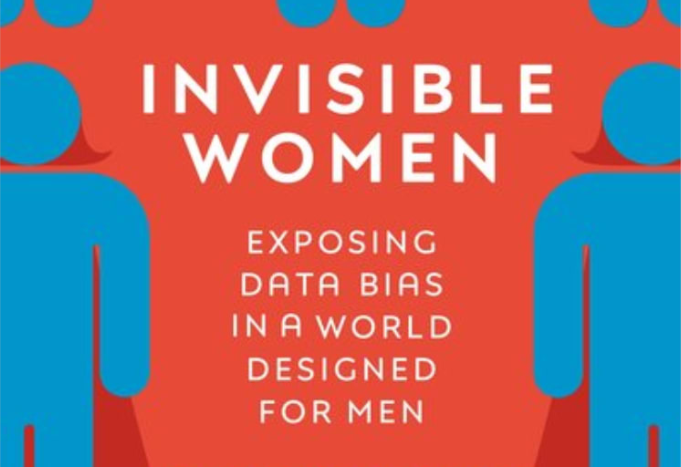Invisible Women by award-winning campaigner, broadcaster and writer Caroline Criado Perez, which exposes the gender data bias, has just taken out the Royal Society Science Book Prize. She is the fifth woman to win the science prize in five years reports The Guardian.
In the book Criado Perez draws on a range of case studies, stories and new research across government policy, medical research, technology, workplaces, urban planning and the media exposing the biased data and blind spots that excludes women:
Our world is largely built for and by men, in a system that can ignore half the population.
Gender data sexism in the built environment
Take snow clearing. Criado Perez explores how clearing major road arteries as a matter of priority over pavements has privileged men.
Criado Perez’s looked at a small town called Karlskoga in Sweden where the local council did a gender analysis of all their policies.
Women do 75 per cent of the world’s care work and do lots of short interconnected trips (‘trip chaining’ i.e dropping kids at school, picking up groceries, visiting older relatives etc ) as well as tending to use public transport and to walk. Meanwhile men tend to travel in a more simplified way (to and from work).
What Karlskoga council found was that their snow clearing policy was prioritising road clearing over pavement clearing. The council was doing this because women’s trip chaining wasn’t factored in as it wasn’t considered ‘work’. But when the council put a value on the unpaid work women did in terms of GDP it was found to rank the same as travel for ‘paid work’.
So Karlskoga council switched its policy. And found it saved them money.
“…they found that their accident and emergency costs fell dramatically, because pedestrians were dominating the numbers of people who were being admitted for having fallen and injured themselves in icy conditions and women were dominating the pedestrians.”
With the rapid pace of technology development artificial intelligence is going to have an increasing impact on our lives. It has the potential to readdress this gender balance but not if we continue to feed it biased data.
As Criado Perez argues the intervention and participation of women in AI, software development and technology development is critical to readdress the imbalance. This combined with collecting sex and gender dis-aggregation data is vital to ensure the default design is not defaulted to male.
Speaking of AI and technology development in the built environment did you know that Snobal is currently hiring for roles across its product development team? If you’re a software engineer or XR Artist with a passion for transforming how we design and build our cities we would love to hear from you!
More info on Gender Data Bias:
+ Invisible Women. 99% Invisible, 23 July 2019
+Book Review – Invisible Women: Data Bias in a World Designed for Men by Caroline Perez. Customer Think, 9 Sept 2019
+Humans are making biased algorithms that entrench discrimination — without even trying. ABC, 7 Sept 2019
+Invisible Women by Caroline Criado Perez – a world designed for men. The Guardian. 28 Feb 2019
+Invisible Women: Exposing Data Bias in a World Designed for Men – a review. The Conversation, 23 Mar 2019
+The Pitfalls of Data’s Gender Gap. Scientific American. 1 Apr 2019
+Statistical gender bias. European Institute for Gender Equality
+From Alexa to Siri and the GDPR: The Gendering of Virtual Personal Assistants and the Role of EU Data Protection Law. King’s College London Dickson Poon School of Law Legal Studies Research Paper Series. Dec 2018
+Too Human: The more “lifelike” simulations are, the less effective they risk becoming. Real Life Mag. 20 May 2019


